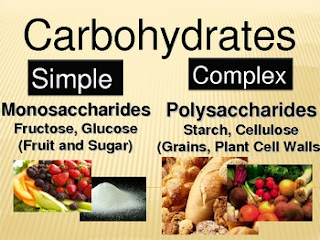Even though some may tell you-carbs ARE NOT the enemy! Actually, they are your ally if you are looking to improve performance.
Carbs are fuel for your body, they are the short burn calories that your body needs. Our body stores both carbs and fat but also stores glycogen which is where the energy in carbs derives from but in less quantities. When you are exercising at a low to moderate rate then your body utilizes fat as fuel but when you are working out at higher intensity leve;s your body shifts its energy from fat to glycogen. Thus why carbs are pivotal to performance.
So what is a carb?

Carbs are broken down into three forms:
- Sugars
- Fibers
- Starches
Without the storage of these forms you are depleting your body. Those that complete marathons or long cycling runs and immediately crash are feeling this depletion. Then your body goes on a mission to restore what it has lost thus it goes after fat and then protein. However, research has proven these are less effective in higher level activities.
So, how many carbs should you consume?????
Our body is not made to store glycogen in high quantities thus those who are adequately fueling their body should have even to complete a 90 minute workout. But remember your body can replenish it's sources fairly easily.
Those who regularly exercise are more capable to maintain their intensity level for a prolonged period of time. Regular exercise also increases the capacity to store carbohydrates. Consumption varies from research states that one should consume between 30-60 grams per hour of exercise up to two hours. If you are working out beyond two hours than your body may need up to 60-90 grams.
Our intake truly makes a difference so think before you consume, Take time to read labels and research the ingredients you are ingesting for optimal performance :)



No comments :
Post a Comment